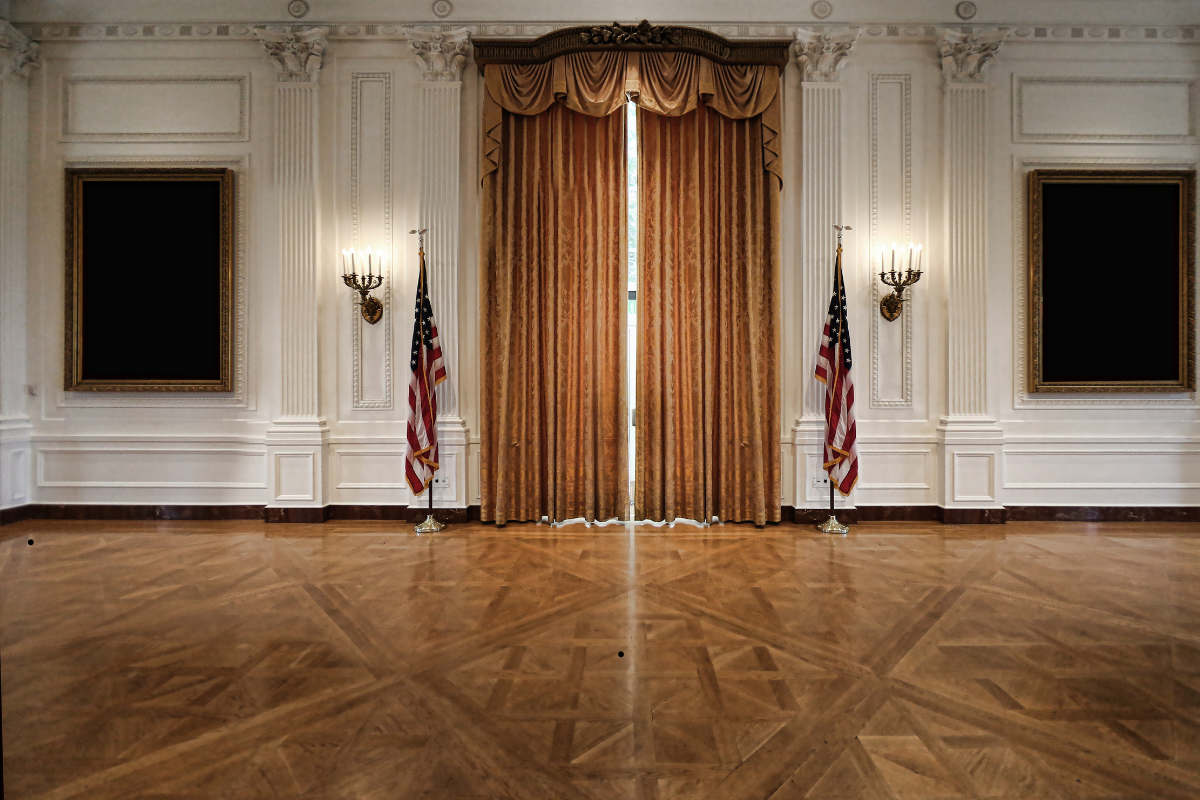Federalist 62
With Federalist 62 Publius turned our attention to the Senate, a part of the system that generated no small amount of controversy. Necessary to garner the support of the small states, the Senate also worried opponents who thought it too aristocratical for American democracy. Even though the 17th Amendment altered the way Senators are chosen — by election rather than “chosen by the legislature” of each state — and this mode of selection certainly (and intentionally) weakened the sovereignty of the states, the Senate remains a reminder of the federalist principle and that the states are more than simply an administrative arm of the federal government. In defending the Senate, mainly as a stabilizing force against the democratic chaos of the House, Madison also demonstrated a classical understanding of the nature and purpose of both law and government.
St. Thomas Aquinas had defined law as “nothing else than an ordinance of reason for the common good, made by him who has care of the community, and promulgated.” Note the four parts of the definition, for Aquinas is not only defining the law but also placing outside the definition official acts that must be considered unjust. It has to be “an ordinance of reason,” which may seem broad but in Aquinas’s usage is also exact in that things must be properly related to their designed ends. Secondly, it can’t be idiosyncratic or to the benefit of factions or parts but must serve the common good. This too can cause some confusion, but minimally it must mean concerns that we all share and are not simply “private.” The delineation of that distinction is an important part of the law. Third, it has to be produced by a legitimate authority, and in a republican or democratic system the people will always be the source of legitimacy. Finally, it must be promulgated, which means that not only must that authority properly make people aware of the laws, but the laws must be written in such a way that people can understand them. The US tax code, as a negative example, may hardly be thought of as a law at all since it is too complex to be understood by your average citizen who is nonetheless taken at some level to be its author.
In this sense Aquinas seems to be saying that a bad law is no law at all since it conflicts, in its nature, with principles of justice. These would be mere edicts or dictats but lack the moral force that law always carries with it. This distinction between law as an inherently legitimate enterprise from government acts that are not reasonable, directed to the common good, or properly promulgated, seems very active in Madison’s mind as he begins his discussion concerning the Senate.
Problems with the House
And well it might, for in Madison’s imagination the House was likely to produce edicts or acts that had coercive force but were not, properly speaking, law. Some countervailing force was needed that could insure the legitimacy of law as issuing from someone “who has care for the community” while insuring its direction toward the common good. The House was an inherently unstable body, and stability was, to Madison, an essential feature of law itself, as it is of reason. Passion alters with circumstances, but reason does not.
Madison approached this question of stability by looking at the sources of law but also it effects. While elections provide the ultimate source of law and legitimacy it is too often the case that representatives lose touch with their constituents, thus undermining the whole idea of popular rule. A bicameral legislature, as opposed to the unicameral one under The Articles of Confederation, provides a “double security” against this tendency.
The Senate also assured a more complete system of representation in that people are not only represented in a mass capacity — that is, an individual voters collected as a majority — but in their mediated interests as citizens of a particular state. By representing the states the Senate maintains the federalist principle of dual sovereignty, and in its system of selection it helps maintain a link between the sovereign entities that compose the union. More than that, the relationship between the two branches of the legislature creates a complex system of representation that balances the excesses of direct democracy, maintains a semblance of sovereignty to the states, and most importantly protects the interests of the smaller states in such a way as to insure their ratification of the Constitution.
If indeed it be right, that among a people thoroughly incorporated into one nation, every district ought to have a PROPORTIONAL share in the government, and that among independent and sovereign States, bound together by a simple league, the parties, however unequal in size, ought to have an EQUAL share in the common councils, it does not appear to be without some reason that in a compound republic, partaking both of the national and federal character, the government ought to be founded on a mixture of the principles of proportional and equal representation.
Madison defended the Senate not only in terms of its mode of representation, he argued that the experience of the country under The Articles made clear the deficiencies of both too much democracy but also too much power left in the hands of the states. By extending the length of Senate terms to six years the framers had introduced two important factors into republican governance: stability and expertise.
Stabilizing Democracy
When Madison looked at the House, no doubt based on his experience in the Virginia legislature, he saw endless churn but also factional interest run amok. Closeness to the people could, he believed, turn out to be as big a threat to liberty and distance from them. What was required was a balancing of interests, a balancing of populism and professionalism, of energy and experience, of large and small, of passion and reason. The two chambers could check the problems associated with both popular rule and court politics by requiring the legislative process to pass the test of both democratic and aristocratic principles.
“What indeed are all the repealing, explaining, and amending laws, which fill and disgrace our voluminous codes, but so many monuments of deficient wisdom; so many impeachments exhibited by each succeeding against each preceding session; so many admonitions to the people, of the value of those aids which may be expected from a well-constituted senate?”
As I write this Americans wonder at a Congress that doesn’t seem to be able to get anything done, including keeping open the doors of government. Madison worried that democratic governments produced a surfeit of rules and regulations that, by the sheer volume making promulgation difficult, undermined the rule of law itself. “The faculty and excess of law-making,” he wrote, “seem to be the diseases to which our governments are most liable.”
“The internal effects of a mutable policy are still more calamitous. It poisons the blessing of liberty itself. It will be of little avail to the people, that the laws are made by men of their own choice, if the laws be so voluminous that they cannot be read, or so incoherent that they cannot be understood; if they be repealed or revised before they are promulgated, or undergo such incessant changes that no man, who knows what the law is to-day, can guess what it will be to-morrow. Law is defined to be a rule of action; but how can that be a rule, which is little known, and less fixed?”
Excess law created confusion and also destabilized the whole regime, which meant that the democratic tendency required the ballast of a legislative chamber removed from the stormy conditions of democratic tumult. Both in its mode of selection and in the length of its terms, the existence of the Senate would introduce expertise and a genuine concern for the common good into the sea of conflicting interests that otherwise defined democratic politics.
Foreign Affairs and Economy
Madison saw this requirement as resulting from two imperatives. The first was to put the fledgling nation on a secure footing in the unstable international politics of the late 18th century. If America was to take its place on the world stage it had to be well-ordered internally if it was to be taken seriously externally. The “mischievous effects of a mutable government” meant that foreign nations would “decline to connect their fortunes” to America’s. This would hamper America’s participation in global trade, and thus economic prosperity, but also make her prey to foreign designs.
Without the greater wisdom, knowledge, and distance from public passions provided by the Senate representatives could easily fall prey to foreign influence, through bribery or other corrupt means. Foreign nations could more easily insert themselves into American electoral processes if elections were frequent and purely popular; but the Senate provided protection against such machinations. Without the Senate, Madison claimed, America would find “that she is held in no respect by her friends; that she is the derision of her enemies; and that she is a prey to every nation which has an interest in speculating on her fluctuating councils and embarrassed affairs.”
Purely popular government with its tempestuous approach to politics and excess law-making would also create economic uncertainty. People make economic decisions based upon the clarity of information available as well as stability in the system of exchange (which is why inflation is such an enormous problem). Economic actors can only evaluate their risk properly if the system is stable and if the rules and regulations are clear. Where there is instability and too many rules and regulations economic advantage will automatically tilt in favor of those who have the leisure and means to study the regulations carefully and have large enough ships to ride the waves. Madison believed that the popular system of a unicameral legislature necessarily tilted economic advantage toward the rich who will always be able to take advantage of confusion and loopholes.
The Novelty of the Argument
It would be easy to miss how novel Madison’s argument is here. The greatest threat to democracy is the excess of democracy. It does the average person little good to to choose his own representative if that elected official both turns out to be bad at his job and/or so enthusiastically producing legislation that the whole system not only gets destabilized but actually works against the interests of the average voter, both politically and economically. Voting may be a necessary condition of good government, but it was not a sufficient one unless popular passions, even well-intended ones, had some sort of counterbalance in cool-headed reason.
The (likely apocryphal) story goes that Jefferson, the great populist, asked Washington over tea why the framers had created the Senate at all. Washington observed that Jefferson had poured his tea from his cup into his saucer, and Washington inquired as to why he had done so. “To cool it off,” Jefferson is said to have replied. “Even so,” Washington responded, “we pour legislation into the Senatorial saucer to cool it off.”
In a like manner Madison argued that good government aims at the right target (public happiness) and chooses the proper means for attaining that end. Governments have always been more adept at the former than the latter. The “proper” means certainly required a grounding in popular will, but not only that. Democracy was necessary but also had to be guided, restrained, instructed, and tamed. The Senate may have been the bridle that the framers put on the spirited colt of democracy, but it placed that bridle in a certain set of hands. In next week’s essay I’ll examine arguments against the Senate as well as Publius’s response.
Director of the Ford Leadership Forum, Gerald R. Ford Presidential Foundation
Related Essays




